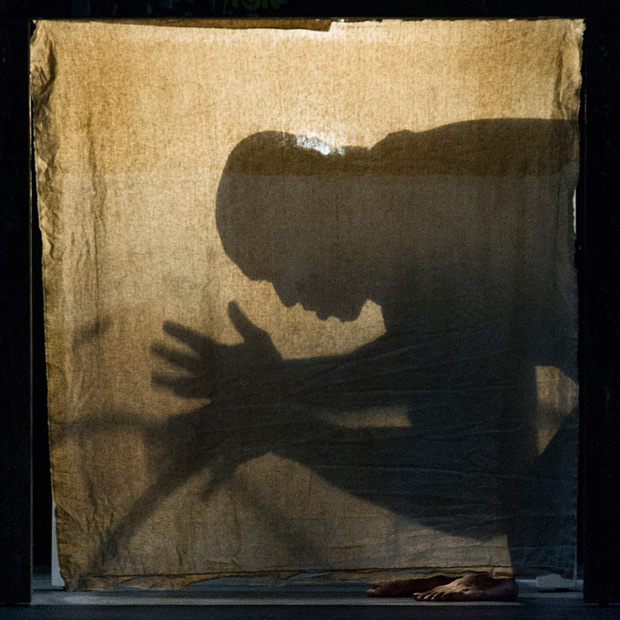
© Foteini Christofilopoulou. (Click image for larger version)
Akram Khan Company
Desh
★★★★★
London, Sadler’s Wells
31 May 2017
Gallery of pictures by Foteini Christofilopoulou
www.akramkhancompany.net
sadlerswells.com
These are billed as the final performances of Akram Khan’s much admired solo work Desh, now returning to Sadler’s Wells for its fourth run since it first appeared here six years ago. Khan’s ruminations on home, the stories we tell each other to make sense of our world, the clashes between generations, and how history has affected them proved to be as popular as ever with a packed house.
Seeing this work again underlines just how well-crafted it is, and how intricately Khan and his collaborators have woven the different threads together to create a satisfying whole, funny and touching by turns, with some glorious visual images. It is superlatively performed by Khan himself, on stage for the full 70 minutes, the liquid arms and virtuosic whirling turns of his hybrid kathak and contemporary style as stunning as ever.
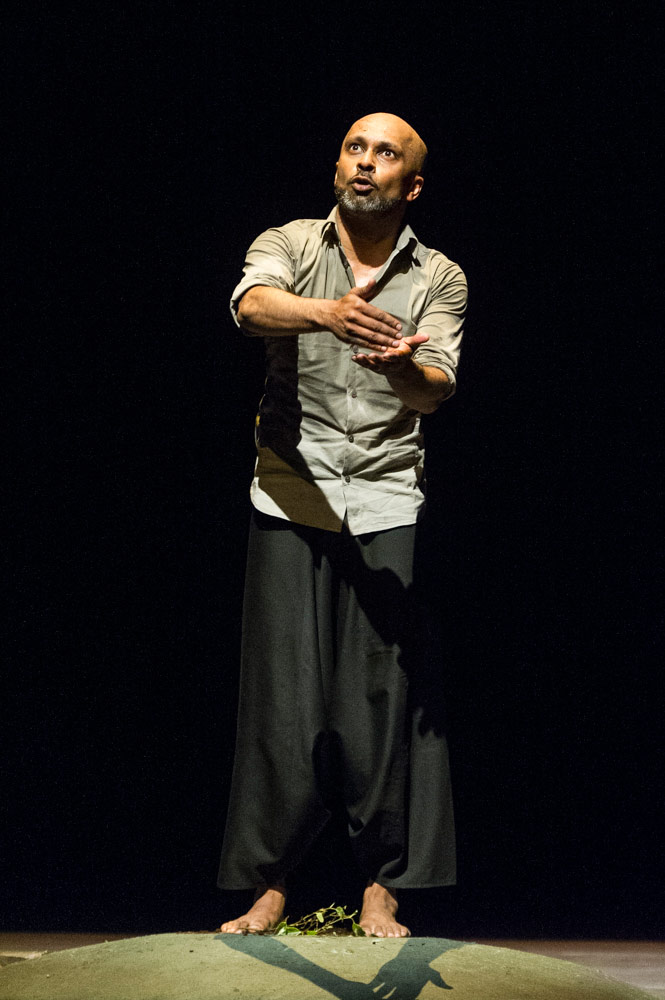
© Foteini Christofilopoulou. (Click image for larger version)
This is Khan’s own personal story, but it achieves a much wider resonance about how we can learn to reconcile ourselves to our past, and to acknowledge where and what we come from as we mature. The action moves back and forward in time, and from Wimbledon (where Khan was born) to Bangladesh where his parents originated. Khan wants to tell Eshita, a little girl, stories of the honey bees in the Bangladesh forest and is horrified when she wants to starts talking about Lady Gaga instead. He’s moved on in life from when we see him as a very western surly teenager practising Michael Jackson dance moves in his bedroom in Wimbledon, arguing with his Dad, with no interest in stories of what the village back in Bangladesh was like. For a dance performance, there is a lot of talking, with writer Karthika Naïr credited as one his collaborators.
The production employs both elegant sophistication and the simplest means. In the storytelling sequence, Khan moves through a charming series of projections of the forest, courtesy of visual artist Tim Yip. There are birds, a crocodile, a delightful elephant, and a tree he climbs to find the honey bees’ nest. It’s a real treat and a clever use of technology. In contrast, in order to morph into his father, the little cook from the village, all it needs is for him to paint eyes and a mouth on the top of his bald head, and to face down to suddenly becomes someone else. It is done with such fluency and ease that it doesn’t occur to you just how physically difficult it must be to keep bent like this while dancing as the character tells and mimes his story, so compete is the transformation.

© Foteini Christofilopoulou. (Click image for larger version)
Khan’s collaborators work not just with him but each other to conjure up worlds on a bare stage. The chaos of a Bangladesh street scene is created by composer Jocelyn Pook’s soundscape of traffic noises and blaring horns, while lighting designer Michael Hulls provides bars of light sliding over the stage as the vehicles that Khan is trying to dodge. They both reinforce his depiction of someone disoriented and out of their depth in unfamiliar surroundings. A panicky Khan, away from home, struggles to get an insouciant twelve-year-old call centre operator to fix his phone, but again the younger generation seems to run rings around him.
Included in the mix are passages about the painful birth of Bangladesh for his father’s generation and the violence involved in the separation from Pakistan. He seems touchingly concerned that little Eshita is too young to be told about this.
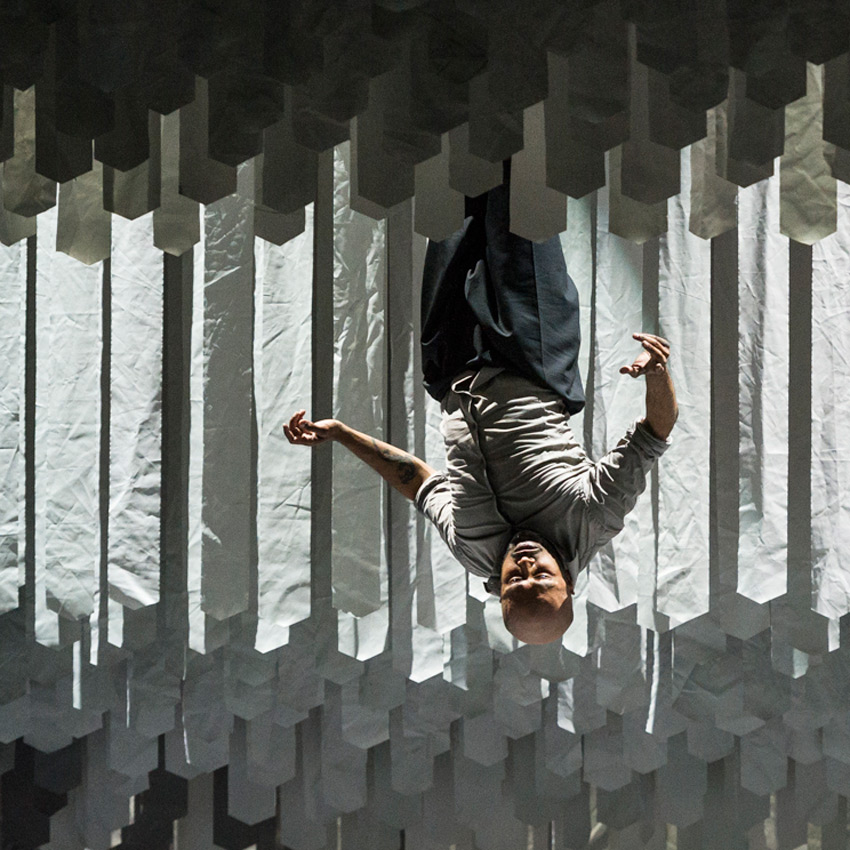
© Foteini Christofilopoulou. (Click image for larger version)
The final passages give us further striking images with rows upon rows of strips of fabric descending from above. Here are the great fields of grass around the village that his father spoke of. Khan vanishes into them, and then is revealed hanging upside down, at home now, still dancing.
There’s a certain bitter sweetness in these final performances of Desh. It is terrific to see Khan at the top of his game in what is one of his most satisfying works. He is 42 now and it is only realistic to expect that his time as a stage performer is finite, so we should make the most of the opportunities we have to see him.







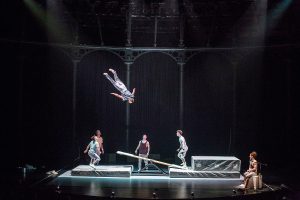



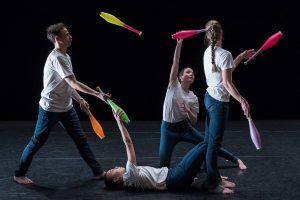
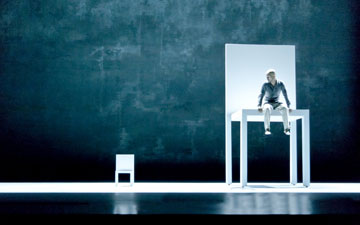
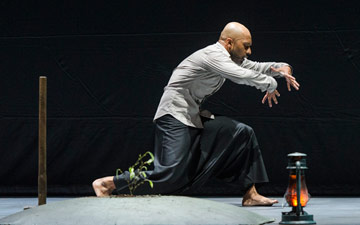
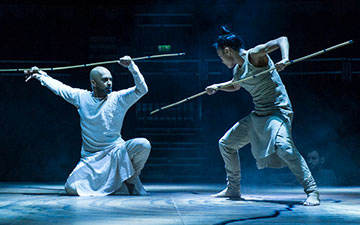
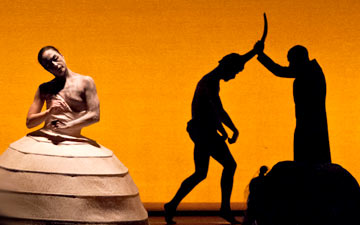
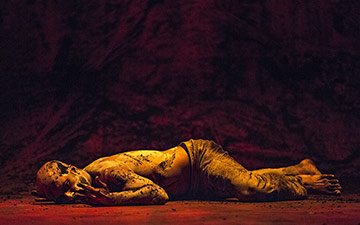
Lynette’s review is wonderfully evocative. How I wish someone would book this
solo performance into San Francisco!
Thanks, Lynette for giving me such a good sense of Khan’s artistry.